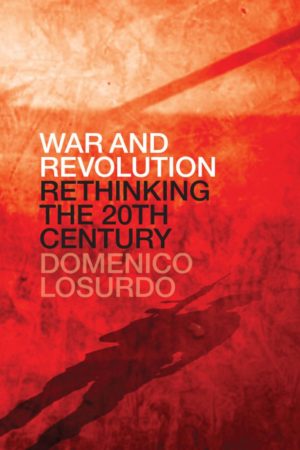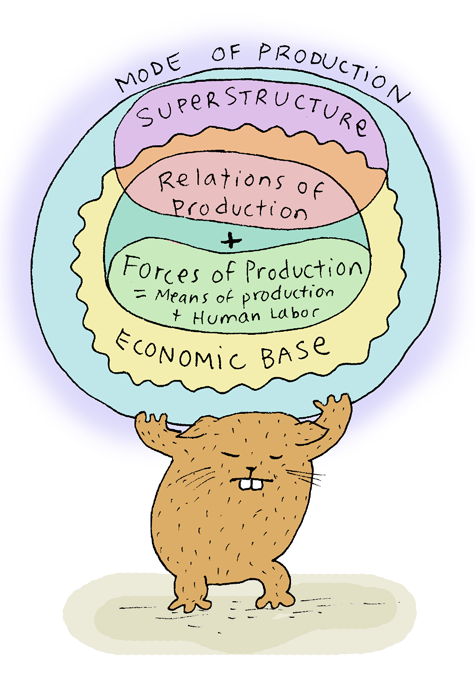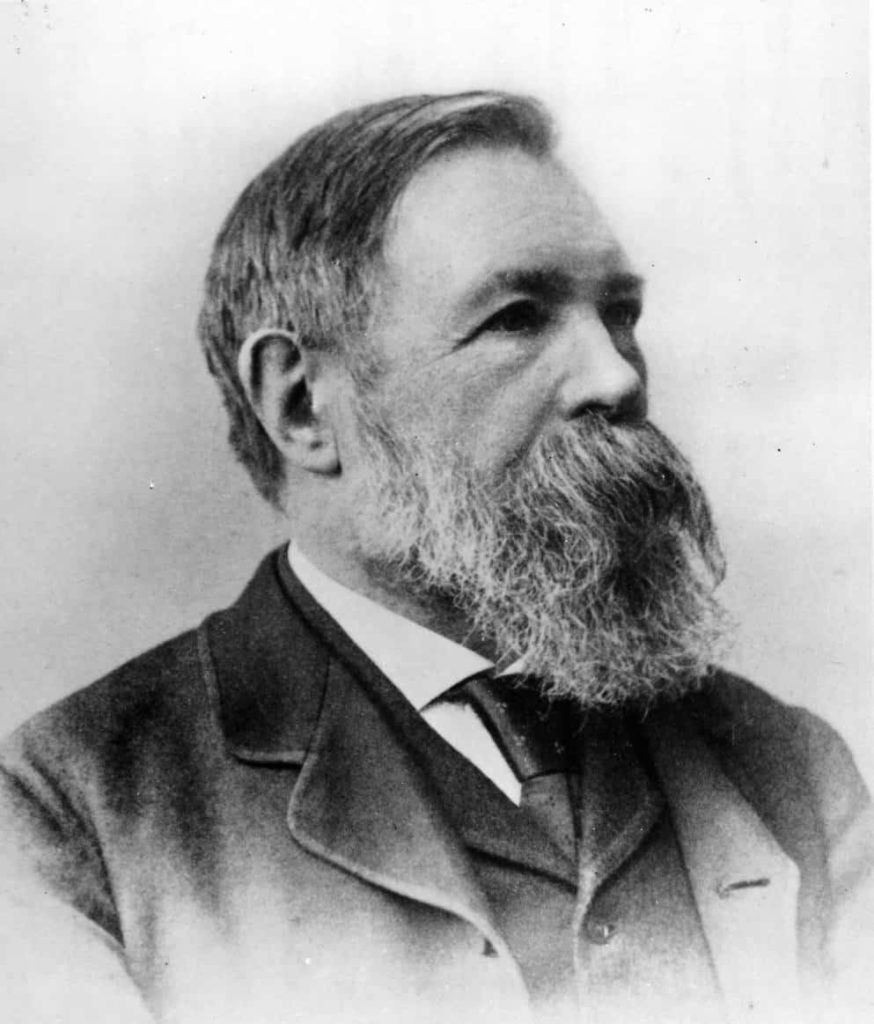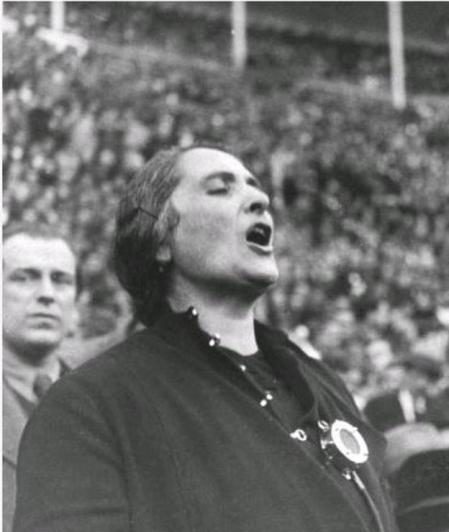Die Gedanken der herrschenden Klasse sind in jeder Epoche die herrschenden Gedanken (The ideas of the ruling class are in every epoch the ruling ideas)
One of the truly remarkable feats of public opinion management is to be seen in the widespread belief that the foundational violence of the USSR and communism in general is or was systemic while violence as perpetrated by liberal democracies is a merely aberrant phenomenon. Ever since the demise of the USSR and the concomitant dismantling of the social states in eastern Europe a contending liberal narrative has become the prevailing one, at least according to the supposed received wisdom as disseminated in the dominant media discourse. This narrative can be succinctly outlined in the proposal that a historical equivalence exists between communism and nazism, an equivalence cynically injurious to the former and perniciously obscurantist where the latter is concerned. This proposal requires a considerable amount of chicanery to sustain itself and serves a dual purpose. Not only does it utterly dislocate and confound the sources and aspirations of both phenomena, it purposefully obscures the enthusiasm and intimacy with which nazism both admired and embraced the liberal imperial tradition while radicalising its racial policies.
In deploying this narrative the liberal tradition seeks to put an end to history in both its chronicled and developing senses and thereby portray itself as a sort of political isolate, the sole remaining tradition of any credibility and authenticity, uncorrupted by any atrocity of scale due to an inherent proclivity to gradualism and some fancied innate mildness. To achieve this it must set liberal principles, such as they are imagined to be, in their abstract and idealised forms against communist praxis in its concrete form, while simultaneously denying any continuity between itself and fascism or Nazism. In concrete terms, contemporary liberalism detaches itself from the radical colonial projects of fascism and Nazism by portraying itself as both an impossibly precise yet somehow vague phenomenon divorced from its own violent and oppressive past. This contradiction is evidenced in the spectrum within liberalism itself as variously self-correcting by progressively purging itself of the darker remnants of its history, denying any continuity with the crimes or colonialism, slavery and genocide or celebrating the latter whether hidden in plain sight or in some camouflaged form.
The renowned Italian Marxist Philosopher-Historian Domenico Losurdo who died in June 2018 at the age of 77 provided an insightful rebuttal to this outlook. Losurdo was a prolific author with over 50 publications to his name. Perhaps the most familiar of these in the anglophone world is Liberalism: A Counter-History, published in 2011. Liberalism investigates the hegemony of the liberal narrative and exposes the deficits of its own self image. In War and Revolution Losurdo continues and expands this critique as well as exploring other corners of the historiography. It is an investigation into the attempt to, as he terms it ‘liquidate the revolutionary tradition’. The larger part of this book comprises two earlier publications in Italian: Il revisionismo storico. Problemi e miti (Historical revisionism. Problems and myths)1996 and Il peccato originale del Novecento (The original sin of the twentieth century )1998. The attempt at liquidating the revolutionary tradition has been variously manifested in its contemporary form in the works of the French historian Francois Furet, the ‘Black Book of Communism’ as well as the German Historikerstreit debate, most prominently by Ernst Nolte, amongst others.
For practically every charge which liberal historiography levels against the revolutionary tradition we can observe its own high priests advocating just the same thing, often bloodier, often earlier and always in the service of a wealthy ruling class. This is not an ideology to be outdone by any other in terms of the brutality and ruthlessness with which it pursued its goals and interests. Losurdo’s forensics in this regard are relentless and devastating. Some of the historical figures who were summoned in Liberalism – Burke, de Tocqueville, Calhoun – are once again examined in War and Revolution. The distance of centuries does not diminish the barbarity of their intellectual contributions to the treatment of colonial peoples. Of course, this barbarity is both real and abstract. The founding fathers of the USA, while famously invoking the self evident truths of freedom for mankind, scrupulously denied the fruits of their revolutionary democracy to Native Americans and African slaves. In tones quite familiar to the contemporary reader, Thomas Jefferson mourned the recalcitrance of various Native American groups in their reluctance to submit to a settler colonialism wrapped in the banner of enlightenment. In the American War of Independence “we pressed on them the observance of peace and neutrality”. It was England’s perfidy which “has defeated all our labors for the salvation of these unfortunate people”. Even today we read that there are African-American social activists who sadly have allowed themselves to become instrumentalized by a similarly perfidious Russian state for the purposes of sowing internal disharmony. However, the American founding fathers, just like their descendants, were a resolute caste. According to Jefferson, the Native American resistance lead them to “take up the hatchet against us, and the cruel massacres they have committed on the women and children of our frontiers taken by surprise, will oblige us now to pursue them to extermination, or drive them to new seats beyond our reach.” The removal of the Native Americans from their lands was for their own benefit and thought to ensure their survival. Again, the modern reader will recognise an echo of this sentiment in the citation of a high ranking US officer during the war in Vietnam – “It became necessary to destroy the town in order to save it.” Start as you mean to go on, in other words. While Jeffersonian democracy, with its emphasis on a sturdy yeomanry somewhat reminiscent of the Wehrbauern of Generalplan Ost, may have been milder than the genocidal Jacksonian variant, they had much in common and both figures are still fondly commemorated in an American institution of overwhelming significance – the dollar bill.
What, then, of the transgressions of revolutionary traditions such as communism? Looking at the Soviet state, the social development stages through which it went produced enormous suffering and hardship, pretty much as one would expect. In this there is some resemblance between the agonies of any society in the process of industrialising. What is entirely absent in the Soviet case, as Losurdo demonstrates, is the idealised racial component deployed in the development of capitalism. Even in the teeth of a merciless war of survival, in which the Soviet population themselves as people of Slavic, Jewish or otherwise racially inferior stock were targeted for either extermination or decimation, Stalin famously distinguished between Germany’s fascist leadership and its people.
Nonetheless, terrible events occurred in the Soviet Union, particularly in its initial two decades. How to account for these and were they a betrayal of a noble idea or the manifestation of some darker corner of the Bolshevik ideology? In the liberal tradition, the mildest verdict on the Bolsheviks is that they squandered their humanism in a utopian folly and are scarcely better if not worse than the Tsarist absolutism which they sought to overthrow. The harshest verdict charges them with an insatiable bloodlust based on class hatred and a perverse disregard for a natural white supremacy, on a par with, or even exceeding Nazi Germany in viciousness and sheer numbers of dead. Yet, while great tragedies unquestionably occurred in the foundational years of the Soviet Union, there is also no denying that these tragedies occurred in situations of acute national and social emergencies, whether beset by foreign invasion, civil war or violent counter-revolution, grinding poverty and natural catastrophe, often concurrently.
In addition, the category of class struggle is qualitatively different from that of genocide. Individuals could by their actions determine to which class they belonged. Elements from the ranks of the bourgeoisie could and did become part of the working-class movement, even part of its leadership. Thus “the category of class genocide, which subsequently became the war horse of historical revisionism, is exposed here as a nonsense: what defines genocide is precisely the irrelevance of the conduct of the individual, naturalistically included in a group whose fate she or he simply cannot escape.”
On the other hand, if we look at the development and enrichment of the capitalist American and European powers we observe that their periods of expansion and wealth accumulation, which generated unimaginable levels of immiseration and suffering for their domestic masses initially and their colonial ones subsequently, largely occurred in times of peace or in situations of splendid isolation. Losurdo introduces, by way of illustration, Talmon’s sophism. “The sophism consists in comparing utterly heterogenous magnitudes: a political tradition judged on the basis of a state of emergency in a situation of acute danger is contrasted with another political tradition judged exclusively on the basis of periods of normality, albeit that they are fully enjoyed only by a privileged fraction of the total population. On this basis Talmon (but Furet’s thinking is substantially similar) can celebrate the Anglo-American liberal tradition as synonymous from the outset with liberty for all and rejection of any form of ‘coercion’ and ‘violence’! Obviously, with such hosannas we abandon the terrain of historiography to soar into there firmament of hagiography”.
If the liberal view of of the revolutionary tradition is that of a sinister monolith, the presentation of liberalism itself in history as presented by enthusiasts for British or American Empire, such as Niall Ferguson, is partly atomised. Its glories and achievements, such as they are, constitute an almost deterministic and inevitable narrative, while its crimes are seldom, randomly occurring and seemingly disconnected or tendentious events, perplexingly at odds with the benign course of its own evolution. Again and again, by turning both Ferguson’s (and historians of a similar outlook) own positions back on themselves and by methodically presenting a few mere excerpts from the appalling vista of Anglo-American imperialism, Losurdo turns the tables. So, while it would be misleading to equate the British and American Empires with the Third Reich, “it would be even more misleading to transfigure two very different empires that somehow conjure up such a disturbing association into champions of the cause of freedom. At all events, the ‘path to modernity’, which in Ferguson’s view the British and American empires had the merit of promoting, was much more ‘bloody’ than he believes.”
In a recent interview, the philosopher Alain Badiou made the following observation: “To cast revolutionaries into the ever open dustbin of ‘totalitarianism’ is a well-rewarded trade in the ideology market, and also in the media, which have almost everywhere become a sector in the great planetary oligarchy.” Domenico Losurdo was a cogent and consistent dissident who significantly contributed to the ideological resistance against this ‘great planetary oligarchy’.
Liberalism: A Counter-History and War and Revolution form a sort of triptych with the as yet untranslated (in English) Stalin: Storia e Critica di Una Leggenda Nera (Stalin: the History and Criticism of a Black Legend) as a third panel. Each of these relentlessly and methodically illuminate the entwined and overlapping phenomena of liberalism, empire and colonialisation, and the only effective opposition to these to have thus far occurred in history.



